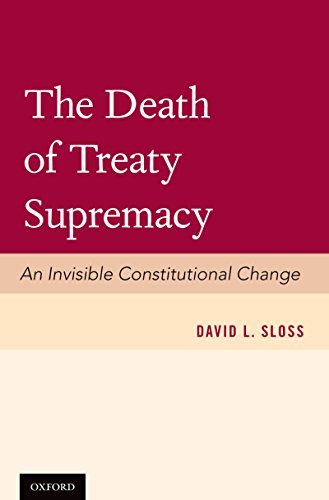
Our friends at Queen Mary University of London announce the following history-related events sponsored by that university’s Centre for Law and Society in a Global Context (CLSGC).
 10 November 2016
10 November 2016
A
new book symposium organized by the CLSGC for
Peter Cane's book
Controlling Administrative Power: A Comparative History (CUP). 4:00 - 7:00pm. Room 313, School of Law, Queen Mary University of London, Mile
End Road, London. Chair: Professor Sionaidh Douglas-Scott (Queen Mary). Speakers: Professor Peter Cane (ANU), Professor Peter Lindseth (UConn), Professor Alison Young (Oxford), Professor Liz Fisher (Oxford). Professor Paul Craig (Oxford).
21 November 2016
A
special seminar with Professor
Robert W. Gordon discussing "The Return of the Corporate Lawyer-Statesman?" Co-hosted by CLSGC, the London School of Economics, and the Institute of Advanced Legal Studies. 3:30 - 5:30pm. Institute of Advanced Legal Studies, Charles Clore House, 17 Russell Square, London.
6 December 2016
A
new book symposium on the
Oxford Handbook of Roman Law and Society, organized by CLSGC and chaired by Dr Maks Del Mar (Queen Mary). 4:00 - 7:00pm. Room 313,
Third Floor, Law Building, Queen Mary University of London, Mile End
Road.
 Panel I: Editors’ Vision
Panel I: Editors’ Vision, 4-5pm
Professor Clifford Ando (Chicago)
Dr Paul du Plessis (Edinburgh)
Professor Kaius Tuori (Helsinki)
Panel II: Commentary, 5-6pm
Professor Adriaan Lanni (Harvard)
Professor Catherine Steel (Glasgow)
Professor Ulrike Babusiaux (Zurich)
7 December 2016
A CLSGC workshop on the
Comparative History of Legal Reasoning. Chair: Dr Maks Del Mar.
Panel I: 2-3.45pm
Professor Adriaan Lanni (Harvard)
Professor Clifford Ando (Chicago).
Panel II: 4.00-5.30pm
Dr Lena Salaymeh (Tel Aviv)
Professor Alain Pottage (LSE).
Panel III: 5.45-7.15pm
Professor Jaakko Husa (Lapland)
Professor Catherine Valcke (Toronto)
14 December 2016
Global Jurists Seminar Two:
Global Jurists in History. Part of the seminar series on Global Jurists: Past, Present and Future, organized by the Centre for European and International Legal Affairs and CLSGC and chaired by Professor Georgios Varouxakis (QMUL). 4:15 - 7:00pm. Venue TBC, Queen Mary University of London, Mile End Road, London. Speakers: Arnulf Becker Lorca (US), Dr Shruti Kapila (UK), Rohit De (US), Dr Katharina Rietzler (UK), Mira Siegelberg (QMUL), Dr Natasha Wheatley (AUS).



















